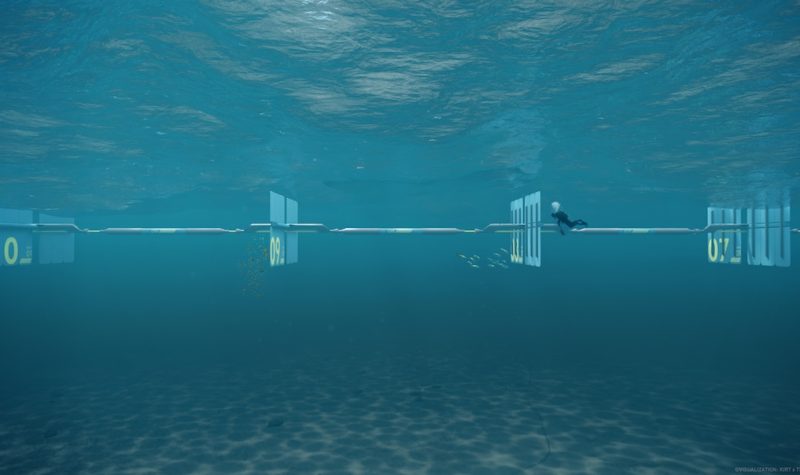Wavepiston: A Solution To A Global Energy Transition

Approximately 70% of the Earth’s surface is comprised of oceans, containing some of the largest sources of energy available. According to the International Energy Agency, the theoretical potential of ocean energy is estimated to be 29,500 TWh annually, surpassing the current global electricity demand.
The key factor in this renewable energy source is its zero-carbon nature. To reach net-zero emissions by 2050, a large-scale shift to renewable energy is needed, estimated to make up 90% of total electricity generation. Ocean energy does not require fossil fuels and does not emit any greenhouse gases, meaning that the installation of ocean energy could avoid up to 234 million tonnes of CO2 in Europe alone.
Reaching climate neutrality will call for large-scale implementation of renewable energy sources, most of which are variable. In order to avoid extreme peaks and lows in production, power systems will have to become more flexible. Ocean energy is the ideal complement to variable energy sources like wind and solar, as it is highly predictable, highly available and is produced time-wise shifted, ensuring a better equilibrium of electricity supply and demand. Both waves and power output are more predictable than wind energy – by 23% and 35% respectively in one North Sea study.
Wavepiston has taken wave energy to unprecedented heights with its revolutionary technology. Utilising a standard hydropower turbine and reverse osmosis system, their patented system is capable of capturing wave energy to generate both clean electricity and clean water, making it highly cost-effective. Furthermore, the installation is designed to have a low visual impact and no negative environmental effects.
“We believe that wave energy will become a significant and integral part of the renewable energy transition. We aim to make Wavepiston a global leader in wave energy solutions for power production and desalination.” – says Michael Henriksen, the CEO of Wavepiston. The UK government has shown promising support for ocean energy, with the announcement of a technology-specific allocation round in 2022, which awarded tidal energy a fixed price Contract for Difference of GBP 178.54/MWh. This is a positive sign for wave energy, demonstrating that ocean energy has been put firmly on the political agenda.
Wavepiston will deliver turn-key systems for producing wave-to-energy, wave-to-desalinated water or combined. The revenue will be based on the installed capacity as well as operations and maintenance during the system’s lifetime. The Wavepiston system is initially expected to deliver electricity at a cost of € 0.13-0.2/kWh and desalinated water at a price of € 0.7-1/m3. Prices are expected to drop to one-third as the technology matures and scales up.
Wavepiston is now in the demonstration phase, where they test and demonstrate the full-scale system in real-life conditions and mature the technology for commercialisation. The company has a test rig at the Technical University of Denmark where, as a part of the VALID project, they run accelerated and hybrid tests. Having completed over 500,000 displacement cycles in accelerated testing with only expected leaks and no major issues. The test rig has shown excellent performance. At the same time, the company is preparing to start the operation of the first full-scale system in the second quarter of 2023 in Gran Canaria. Various parts of the equipment have already been tested in Canaria’s waters and are now being prepared for the full-scale installation.
On the verge of the final stages of demonstration and commercialisation, the company has launched its equity crowdfunding campaign on the Seedrs platform. This follows their successful €2.4M equity crowdfunding in 2020/2021.
“With crowdfunding, we are giving a broader audience the chance to become an active part of the green transition, and we hope that this campaign will help raise awareness for the potential of wave energy.” – says Michael Henriksen.
In addition to the private equity, Wavepiston raised € 6M in grants from EU programmes, SME Phase 2 and Fast Track to Innovation for two full-scale demonstration projects, and participation in the VALID Horizon 2020 development project on accelerated testing.
Find out more at the Seedrs website.
Comments (0)